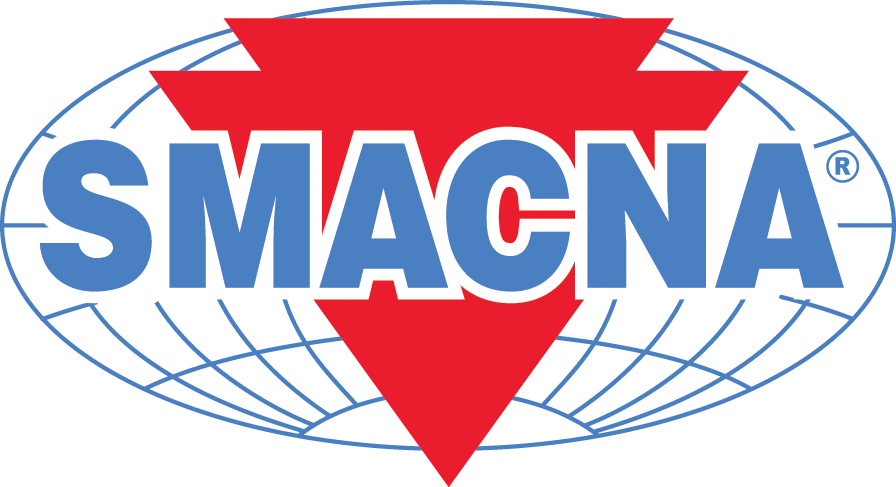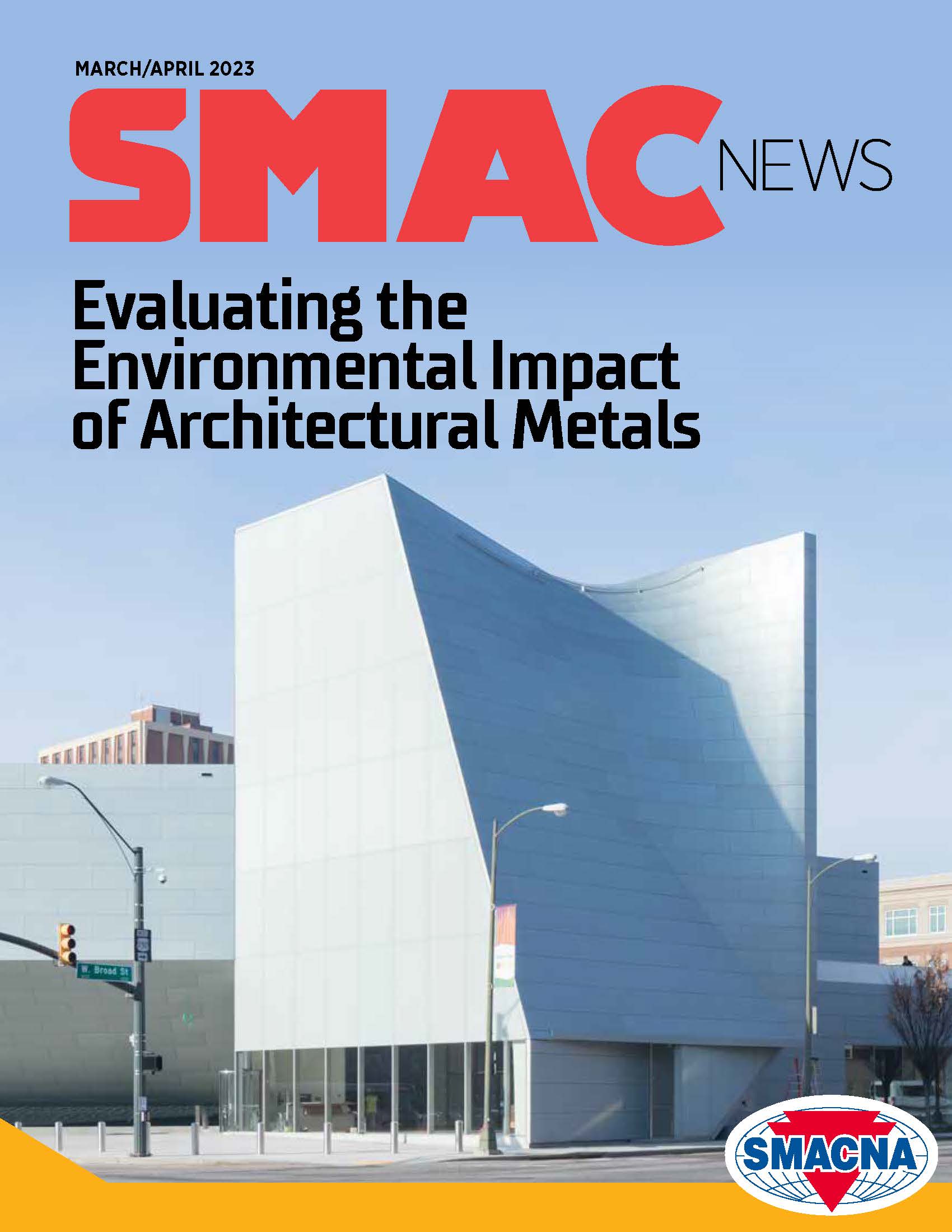SMACNA at the White House & SMACNA Endorses Bipartisan Bill on Substance Abuse
SMACNA was asked to be part of a policy roundtable on supply chain for highly efficient heat pumps and related decarbonization technologies that are key parts of whole house retrofits.
 SMACNA was asked to be part of a policy roundtable on supply chain for highly efficient heat pumps and related decarbonization technologies that are key parts of whole house retrofits. SMACNA’s Executive Director of Government & Political Affairs, Stan Kolbe, joined incoming SMART President Mike Coleman at the off-the-record policy discussion in April. This roundtable was closed to the press and public to foster candid dialogue.
SMACNA was asked to be part of a policy roundtable on supply chain for highly efficient heat pumps and related decarbonization technologies that are key parts of whole house retrofits. SMACNA’s Executive Director of Government & Political Affairs, Stan Kolbe, joined incoming SMART President Mike Coleman at the off-the-record policy discussion in April. This roundtable was closed to the press and public to foster candid dialogue.
At the roundtable, the White House and Energy Secretary Granholm convened heat pump manufacturer, contractor and distributor executives and labor leaders to discuss how America can lead in growing the global clean energy economy by investing in America’s workers and creating good, union jobs here at home.
The discussion focused on how pairing public and private investments with new Inflation Reduction Act, Bipartisan Infrastructure Law and Defense Production Act programs — such as tax credits, rebates, grants and loans — will spur deployment of and help meet residential and commercial demand for heat pumps. Taken together, these efforts will also support good jobs, boost American competitiveness, reduce emissions and lower energy costs for families and small businesses.
Executives and labor leaders discussed how supply and demand side signals from the private and public sectors can spur even more investment in heat pump manufacturing, while scaling workforce development and training.
America’s manufacturing resurgence continues, as the Biden-Harris Administration is committed to working with key partners to reap the economic and pollution-reduction benefits of investing in an American-made clean energy economy.
SMACNA Endorses bill on substance abuse (S. 644/H.R. 1359).
Major identical bipartisan bills were just introduced to assist workers and others suffering from opioid and related substance abuse in their communities with the support of trained medical professionals. The Senate bill, S. 644, the Modernizing Opioid Treatment Access Act (MOTA), was sponsored by Senator Ed Markey (D-MA) and Senator Rand Paul (R-KY). The bill would increase access to care for people, often in the workforce, experiencing opioid use disorder (OUD) by reforming outdated regulations governing the prescription and dispensing of methadone and related effective medications for treatment and recovery. This long overdue legislation was introduced March 2nd and cosponsored by Senators Sanders (I-VT), Braun (R-IN), Booker (D-NJ) and Hassan (D-NH).
In the House, H.R. 1359, the Modernizing Opioid Treatment Access Act (MOTA), was sponsored by Rep. Don Norcross (D-NJ-1) and Rep. Don Bacon (R-NE-2). This long overdue legislation was introduced March 6th and cosponsored by Reps. Fitzpatrick (R-PA-1), Tonko (D-NY-20), Kim (D-NJ-3), Kuster (D-NH-2), Trone (D-MD-6) and Pettersen (D-CO-7).
As we know, the construction industry has one of the highest injury rates in the U.S., and opioids have commonly been prescribed to construction workers to treat the pain caused by these occupational injuries. Construction workers are at greater risk for overdose, with studies — most recently in both Massachusetts and Ohio — showing that they were seven times more likely to die of opioid-related overdoses than the average worker. Since use of opioids has led to addiction and overdose deaths, it is important for workers and employers, as well as policy makers, to understand the risks and needed alternatives.
SMACNA members have long encouraged and supported established substance abuse assessment and treatment programs, as well as outreach initiatives across the nation. Our association and its hundreds of chapters provide our member firms resources on mental health, suicide and drugs and alcohol prevention. We are also members of the Construction Alliance for Suicide Prevention. In addition, we make available support toolkits that include fact sheets, safety talks, reports and more. A significant number of our corporate members implement a workplace program on opioids from the National Safety Council. Further, SMACNA provides support for the Center for Construction Research and Training, which provides resources to the Prevent Opioid Deaths in the Construction Industry (PODCI) program.
Status: Both bills are awaiting hearings and SMACNA has urged all members of Congress to co-sponsor this legislation and seek its amending to any related bills advancing in Congress. I have met with many of the House sponsors individually on H.R. 1359 and have contacted Senate sponsors as well. Further I have reached out to our industry management and labor partners to seek their help in gaining greater momentum for both bipartisan bills.
Published: May 16, 2023
IN THIS ISSUE
Big Clients Require Big Partners
JPMorgan Chase & Co.’s global headquarters becomes AABCO’s next commercial HVAC client in NYC.
Bringing Shade to Schools
Intech helps install sheet metal shade structures at California schools.
Evaluating the Environmental Impact of Architectural Metals
Zahner talks about how the Life Cycle Assessment accounts for the environmental impact of metal material from its initial extraction through manufacture and use and on to the end of its designed useful life.
Exploring metal’s role in sustainable architecture
Metals are different from nearly all other materials used in our built environment. Once the useful life has ended, the metal is collected and recycled.
Going to Market
With advertising, 128-year-old Welsch Heating & Cooling Co. isn’t afraid to try new ways to reach their customers — as long as they work.
How to Prepare Your Business for Cyberattacks
Bulletproofing your business against a cyberattack can help protect you from today’s threats.
Metal is a Low Waste, Sustainable Building Material
Sustainability is more than just an industry buzzword at Zahner. It's a daily commitment to preserving and protecting the natural resources we’ve been entrusted with and using them responsibly in the built environment.
Sheet Metal Werks Shifts Field Hours to Shop Hours
The Illinois company saved significant man-hours by planning ahead.
SMACNA at the White House & SMACNA Endorses Bipartisan Bill on Substance Abuse
SMACNA was asked to be part of a policy roundtable on supply chain for highly efficient heat pumps and related decarbonization technologies that are key parts of whole house retrofits.
SMACNA Government & Technical Updates & Engagement Opportunities
The first quarter is always busy at SMACNA. We have lots of association events, our technical department is out in force, labor is starting its bargaining season and the government relations team is focused on many regulatory issues.
The Challenges With Manning Megaprojects
With the pandemic entering a new phase, construction has boomed with what are now widely known as “megaprojects.” Every day, it feels like there’s a new stadium, microprocessor factory or some other massive project getting underway. The demand for
Top Contractor Strategies for 2023, Part 2
In the last issue of SMACNews, I presented the first five of Grassi’s Top 10 Contractor Strategies for 2023. Those approaches to purchasing, procurement, prequalification, increased costs and project management are designed to cut through the noise
Understanding The Notice Requirements In Your CBA
For contractors with collective bargaining agreements (CBAs) expiring in 2023, it is important to remember that most CBAs, including the Standard Form, include an “evergreen” or “automatic renewal” clause.


